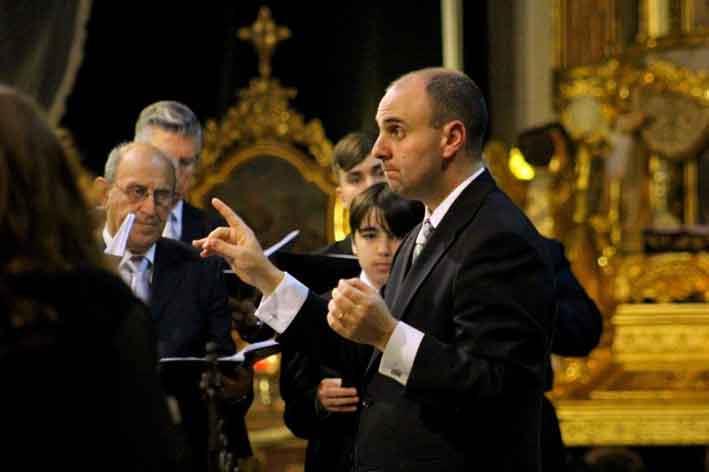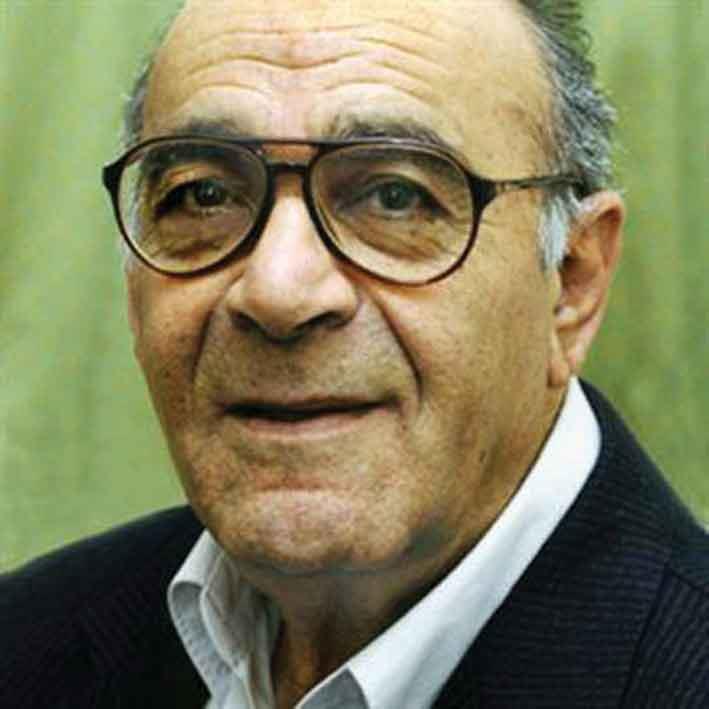Since its inception in 1988, the annual Malta International Choir Festival has gone from strength to strength and has established itself firmly amongst the world’s most popular and most unique choir festivals. This year’s festival will be the biggest the country has held, with no fewer than 33 choirs taking part.
In an exclusive interview, composer, conductor and Chairman of the MICF Organising Committee Christopher Muscat and composer, conductor and Artistic Director of the MICF Organising Committee Rev. John Galea, talked to The Malta Independent on Sunday about the two-day celebration of music.
This year’s festival will be host to 33 choirs, including The Gentlemen Singers and the Michael Laus Choir, which translates into over 1,100 participants from 19 different countries (Belgium, Bulgaria, China, Czech Republic, Estonia, Germany, Hungary, Indonesia, Israel, Italy, Latvia, Lithuania, Malta, Poland, Romania, Russia, Slovenia, Spain and United Kingdom).
What is the age range in such a choir festival?
“The festival brings together young and old (probably as young as 10 and as old as 94), choristers from various backgrounds, cultures and nationalities ... all sharing their common love for choral singing.”
Where will the festival be held?
Over the years, the Malta International Choir Festival has become one of the most popular destinations for choirs worldwide, not least because of the unique locations in which the various activities of the festival take place. These prestigious venues, which include St John’s Co-Cathedral, the Mediterranean Conference Centre and numerous historical churches around the island, offer an emotionally-charged atmosphere and a different ambience to that to which the choirs are traditionally accustomed.”
What is the programme?
In actual fact, the Malta International Choir Festival is a year-long activity. Amongst the many activities held during 2017 is the MICF International Composition Competition, which this year saw the participation of 113 submissions from 22 different countries not only all around Europe but also as far afield as Korea, Indonesia, Australia and New Zealand. The winning composition, Gloria by Argentinian composer Mario Luis Rossi, will be performed for the first time at the festival.
In April 2017 an international symposium on choral technique entitled Chorusology was held for the first time in Malta under the auspices of the Malta International Choir Festival.
For the first time ever, this year’s festival will consist of two concerts, both in the Republic Hall of the Mediterranean Conference Centre. The first, on Friday, 3 November, is an evening of ethnic choral singing during which the audience will be able to enjoy a colourful, cultural slideshow from around the world. Each of the eleven participating choirs will be performing music from their own country, mostly in folk costume and some also accompanied by traditional dance movements.
On the following day, Saturday, 4 November, the second concert will feature the main guests of the festival: the Gentlemen Singers (Czech Republic) and the Arsis Handbell Ensemble (Estonia). The former is a choir composed entirely of male singers who will be presenting an eclectic programme of classical, contemporary and jazz selections. The Arsis Handbell Ensemble developed from the chamber choir Arsis in 1993. Today it consists of eight professional players who make use of one of the most perfect sets of in the world consisting of seven plus four octave sets of handbells and a seven-octave set of handchimes. The ensemble has performed all over the world and has released seven CDs. Their appearance at the festival is another first, since it is believed that no other handbell ensemble has previously performed in Malta.”
Will this year’s festival involve a competition and judges?
This year’s non-competitive element is also unprecedented in its dimensions. It will run not only throughout the four days of the festival but also, due to popular demand, there will be other concerts around the island in the days both before and after the festival itself.
From 1 to 4 November a traditional festa planċier (decorated stage) at City Gate, Valletta, will be the main venue for a number of Singing in the City friendship concerts. On 5 November, various choirs will also be performing the Liturgy of the Sunday Mass in no fewer than 17 churches around the island.”
What was your vision for this year’s festival?
The teaching aspect is central to the festival’s ethos. Building on the success of the Chorusology conference held last April, three of the adjudicators (Jenevora Williams, Branko Stark and Jan Vicar) will be holding individual workshops on vocal and choral technique on the afternoon of Saturday, 4 November.
What features will be returning or will there be something new or special introduced?
“Amongst the most anticipated events of the festival is the unique opening ceremony being held on the evening of Thursday, 2 November at St John’s co-Cathedral. All the choirs will first make their way down Republic Street, singing, before uniting in the awe-inspiring co-Cathedral in a celebration of songs and prayers for World Peace. Leaders of various religious denominations in Malta will be offering their prayers to the musical accompaniment of choirs from different cultural and spiritual backgrounds. Over the years, the organising committee has also learnt that choirs cherish every opportunity to get together, share experiences and make new friends, which is why a lot of attention and preparation goes into the ‘non-musical’ aspects of the festival, such as the opening and closing receptions, the mid-day lunches, the prize-giving ceremony on Sunday evening and the Grand Harbour By Night tour that will follow it.”
“It all looks extremely promising for us to continue organising a festival that attracts so much interest and attention from international choirs and media alike, yet it is always a challenge to ensure the participation of local choirs. Nevertheless, the ever-increasing standards achieved by the Malta International Choir Festival over the years have put Malta very prominently on the international map of choral activities. It gives the organising committee a great deal of satisfaction to note that the statistics for this year’s festival are the best that Malta has ever seen over the past 22 years since its inception in 1988.”

Christopher Muscat, Composer, Conductor and Chairman of the MICF Organising Committee
First prize winner of the Joyce Dixey (2000, UK), the Jaume Dotras Serrabella (2006, Spain) and the APS Bank (2012, Malta) composition competitions, Christopher Muscat studied composition and conducting at the Universities of Malta and Surrey, where he earned his Master of Music degree with distinction. His compositions have been performed in many important European centres including the prestigious Berliner Philharmonie.
As a conductor, Muscat regularly conducts ensembles and orchestras in Malta and abroad and is equally at home with both standard and contemporary repertoires. He has been a visiting lecturer in music at the University of Malta since 2003 and has been invited to sit as a juror on various national and international music competitions. He is also very much involved in the field of sacred music and is the Music Director of the Jubilate Deo Choir.

Rev. John Galea, Composer, Conductor and Artistic Director of the MICF Organising Committee
Rev. John Galea received his musical education at the Seminary and later from private tutors. He attended master classes in orchestral practice and conducting in Vienna and at the Academia Chigiana in Siena. Between 1965 and 2000 he directed the St Julian’s Choir. In 1990 he was nominated Musical Director of the Cappella Diacono, whose main activity is the performance of liturgical music composed by Carlo Diacono.
Between 1993 and 2000 he served as Maestro di Cappella of the Metropolitan Cathedral and established the Cappella Cathedralis choir to perform during the principal liturgical feasts at Mdina Cathedral and St John’s co-Cathedral. In recent years he was entrusted with the APS Bank project for the realisation, editing and performance of religious music by Maltese composers, which was also published on CD.